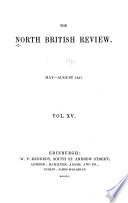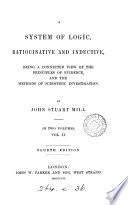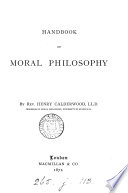 | 1851 - 616 pages
...from water, or as hydrogen, carbon, and azote, are different from nerves, muscles, and tendons. Human beings in society have no properties but those which...resolved into, the laws of the nature of individual man." It may be added that this view is natural to students of political economy, — the contests of this... | |
 | John Stuart Mill - 1856 - 560 pages
...water, or as hydrogen, oxygen, carbon, and azote, are different from nerves, muscles, and tendons. Human beings in society have no properties but those which...of Causes is the universal law. Now, the method of philosophizing which may be termed chemical overlooks this fact, and proceeds as if the nature of man... | |
 | John Stuart Mill - 1858 - 666 pages
...water, or as hydrogen, oxygen, carbon, and azote, are different from nerves, muscles, and tendons. Human beings in society have no properties but those which...of Causes is the universal law. Now, the method of philosophizing which may be termed chemical, overlooks this fact, and proceeds as if the nature of... | |
 | 1867 - 224 pages
...Sentiment." Explain the nature of this controversy. What would be your own solution of it ? 8. ' Human beings in society have no properties but those which...resolved into the laws of the nature of individual man/ Discuss this. [Turn over. 9. ' Every law, simply and strictly so called, is set by a sovereign person,... | |
 | Andrew Bisset - 1871 - 514 pages
...water, or as hydrogen, oxygen, carbon, and azote, are different from nerves, muscles, and tendons. Human beings in society have no properties but those which...which may be termed chemical overlooks this fact, and proceeds as if the nature of man as an individual were not concerned at all, or concerned in a... | |
 | Henry Calderwood - 1872 - 356 pages
...Philosophie Positive, 1. 31 ; 2d ed. The following passage from Mr. Mill maybe taken in reply : — ' Human beings in society have no properties but those which...derived from, and may be resolved into, the laws of nature of individual man ; ' System of Logic, 2d ed., n. 543. But, for the reason indicated by Hume,... | |
 | Henry Calderwood - 1874 - 328 pages
...Positive, i. 31 ; 2d ed. The following passage• from Mr. Mill maybe taken in reply : — ' Human beings in society have no properties but those which...derived from, and may be resolved into, the laws of nature of individual man ; ' System of Logic, ad ed., n. 543. But, for the reason indicated by Hume,... | |
 | 1886 - 652 pages
...water, or as hydrogen, oxygen, carbon and azote are different from nerves, muscles and tendons. Human beings in society have no properties but those which...resolved into, the laws of the nature of individual man ". Now it is undeniable that the aggregate of the actions of man in society constitute a more complex... | |
 | 1886 - 892 pages
...value of Sir Henry Maine's specific instances, or, as he calls them, " extremely accessible facts :"— In social phenomena the Composition of Causes is the Universal Law. Now, the method of philosophizing which may be termed chemical overlooks this fact, and proceeds as if the nature of man... | |
 | John Holmes Agnew, Walter Hilliard Bidwell - 1886 - 898 pages
...of Sir Henry Maine's specific instances, or, as he calls them, sible facts :" — extremely accesIn social phenomena the Composition of Causes is the Universal Law. Now, the method of philosophizing which may be termed chemical overlooks this fact, and proceeds as if the nature of man... | |
| |